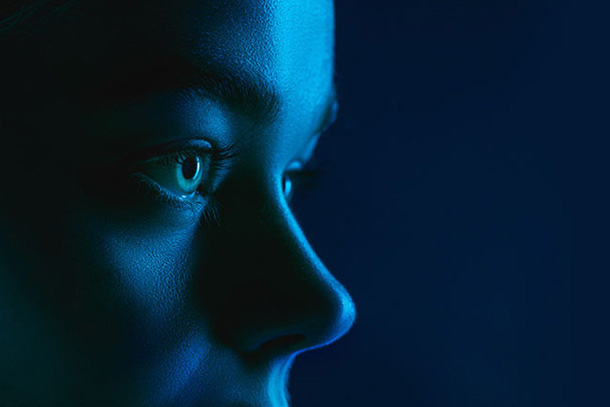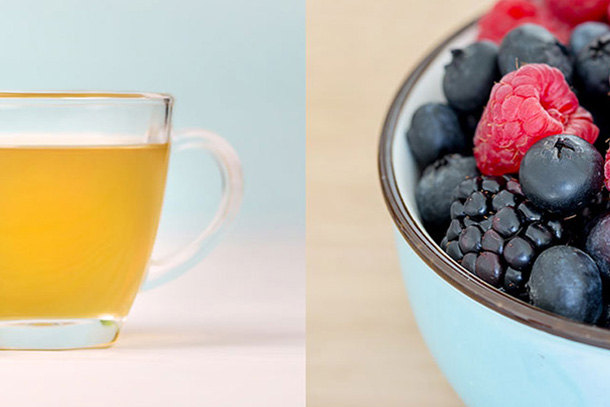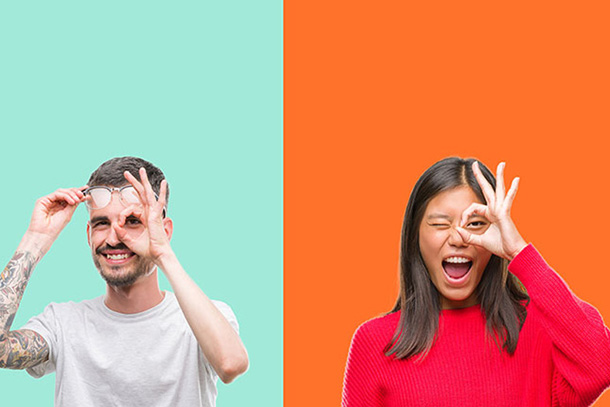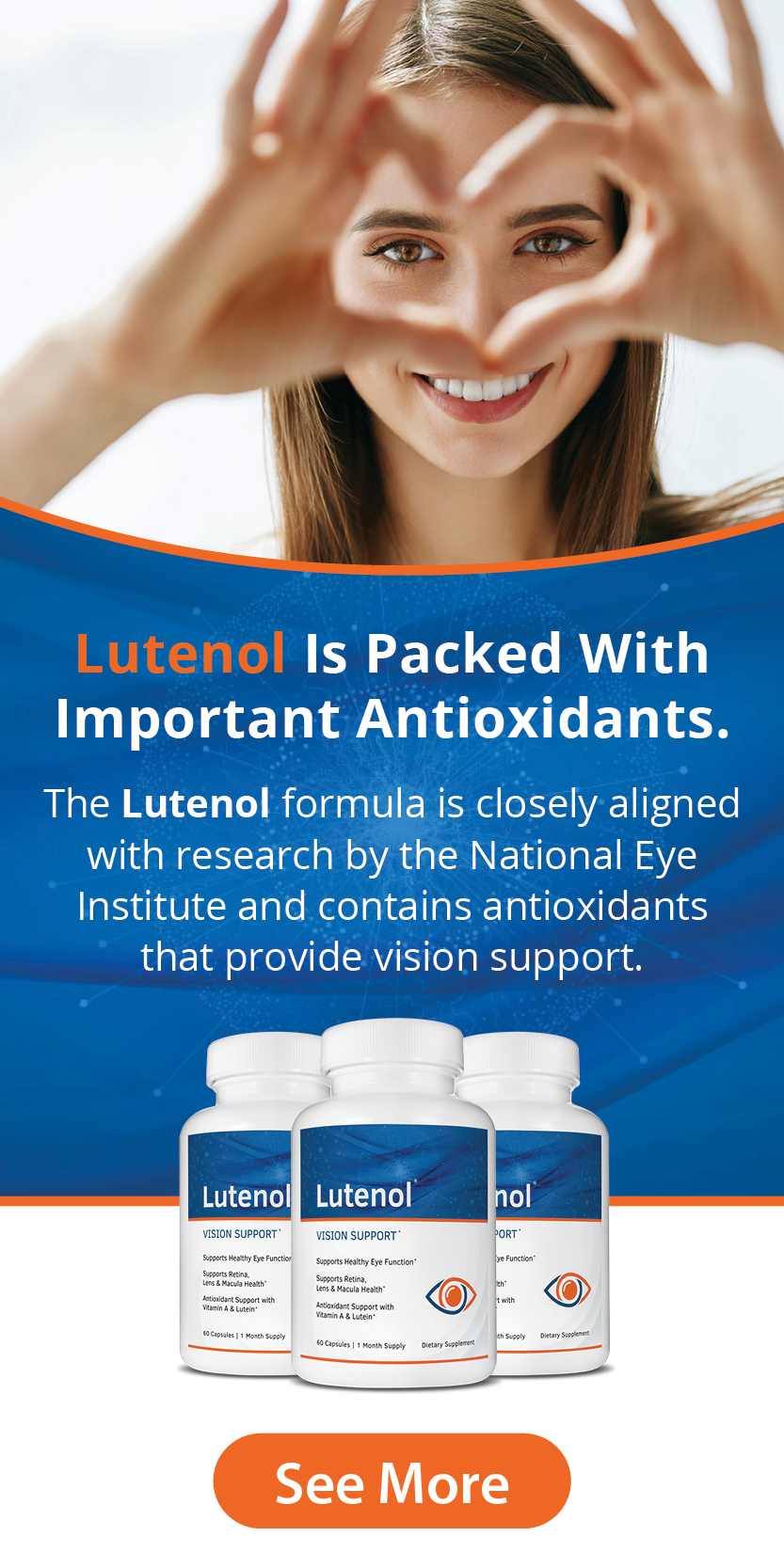
Is blue light really bad for the eyes?
In today’s digital world, you are being exposed to more blue light than ever.
In fact, you are probably being exposed to blue light right now as you read this article on your smartphone or computer.
There is growing concern that excess blue light could be harmful to eye health. We shed some light on the concerns.
What is blue light?

Blue is one of seven colors on the visible light spectrum, alongside red, orange, yellow, green, indigo and violet.
Each color has a different wavelength and energy level. Blue light has short wavelengths, making it higher frequency and higher energy than other colors.
Blue light is all around you. The largest source comes naturally from sunlight.
It is also emitted by artificial lights and the screen on your smartphone, LED TV and computer.
Blue wavelengths help your body clock keep time by controlling your sleep-wake cycle. They can also boost alertness, memory and mood.
But what happens if you are exposed to too much blue light?
From the eyes’ point of view

Do you spend hours a day staring at screens that emit high-energy blue light, maybe even at close proximity to your eyes? You are not alone.
In a recent survey by Statista, 79% of Americans said they spend at least three hours a day on their phones, with 46% admitting to spending an average of 5-6 hours a day. And that doesn’t include work-related smartphone use or computer screen time.
Scientific research on the effects of blue light exposure on the eyes is rapidly growing. What we do know is it has an effect on these sensitive sensory organs.
At one end of the spectrum, blue light can affect your sleep cycle. At the other end, excessive blue light exposure can cause oxidative stress.
Quality sleep is important for optimal health but as evenings become more illuminated with technology, sleep cycles are being negatively affected.
That is because blue light suppresses melatonin, a hormone that regulates your sleep-wake cycle. It sends the body's biological clock — or the circadian rhythm — out of sync.
More alarmingly, high-energy blue light passes through the eye’s cornea and lens to the delicate retina, where it produces free radicals.
Free radicals are not all bad, but the body needs to maintain a certain balance of antioxidants and free radicals to avoid oxidative stress. This is where lutein and zeaxanthin come in.
There are about 600 carotenoids found in nature, but lutein and zeaxanthin are the only two found in high quantities in the eye's macula and retina.
These ‘eye vitamins’ act as photoprotective agents and work to filter blue light. They also have antioxidant properties that suppress free radicals, therefore combating oxidants.
How can I filter out blue light’s effects?

If you make one change today to shield your eyes from the effects of blue light, focus on your diet – in particular, lutein and zeaxanthin.
These powerful antioxidants are not produced by the body, but they are an important part of good eye health and a natural defense against blue light.
Lutein and zeaxanthin are often found together in foods, including green leafy vegetables such as kale and spinach.
Major clinical trials sponsored by the National Eye Institute found 10mg of lutein and 2mg of zeaxanthin a day is beneficial.
But the average American adult only consumes about 1-2mg of lutein per day.
Good eye health supplements, such as Lutenol, contain lutein and zeaxanthin alongside other ingredients proven to provide vision support.
A dietary supplement is an effective way to increase your intake of these important eye-supporting antioxidants.
Other steps you can take to reduce the effects of blue light:
- Follow the 20-20-20 rule. It is recommended you take a break from staring at your screen every 20 minutes by looking 20 feet away for 20 seconds.
- Activate the in-built blue light filter on your phone or computer, or download a trusted blue light filter app.
- Limit blue light at night by switching off devices at least one hour before you go to bed.
- Blue light glasses can also be used to filter high-energy blue light.
The verdict

Blue light is needed for good health. It boosts alertness, helps memory and regulates the circadian rhythm.
But does too much blue light exposure harm the eyes?
Scientists are still trying to figure that out.
At Lutenol, we think taking a proactive approach to eye health is best, because foresight is better than hindsight.
Ensuring your diet contains a good amount of eye antioxidants lutein and zeaxanthin and taking regular breaks from swiping, scrolling and typing can go a long way towards supporting your vision.



